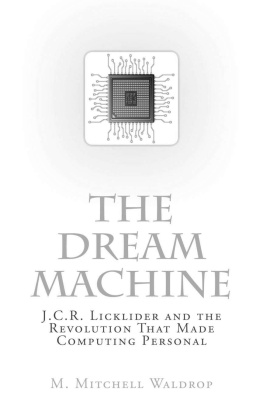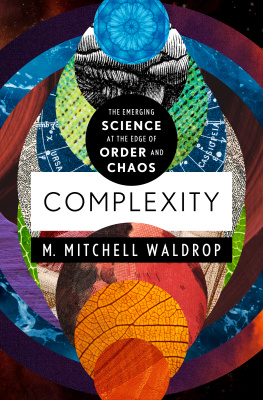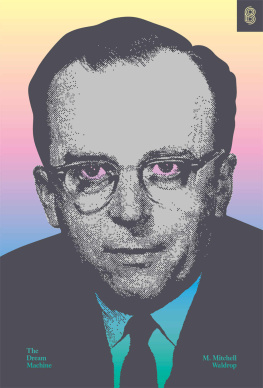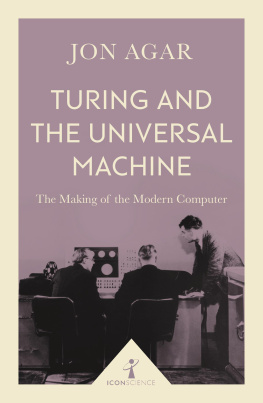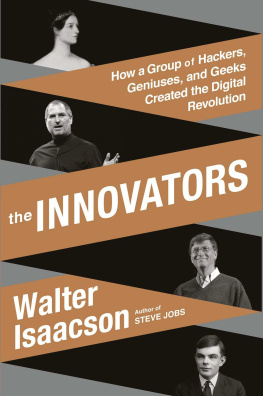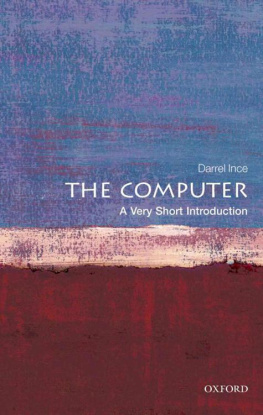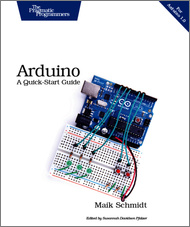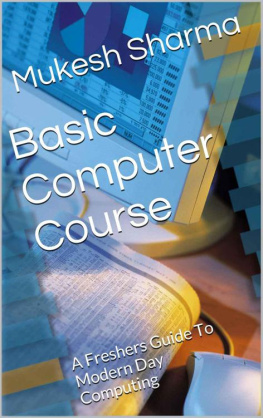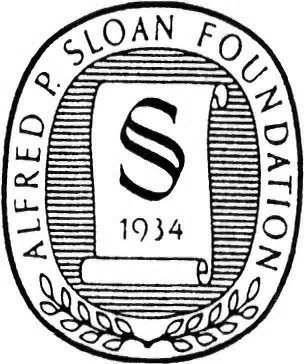THE DREAM
MACHINE
J.C.R. Licklider and the
Revolution
That Made Computing
Personal
M. Mitchell Waldrop
Copyright 2001 by M. Mitchell Waldrop
To AEF
THE SLOAN TECHNOLOGY SERIES
Dark Sun: The Making of the Hydrogen Bomb by Richard Rhodes
Dream Reaper: The Story of an Old-Fashioned Inventor in the High-Stakes World of Modern Agriculture by Craig Canine
Turbulent Skies: The History of Commercial Aviation by Thomas A. Heppenheimer
Tube: The Invention of Television by David E. Fisher and Marshall Jon Fisher
The Invention That Changed the World: How a Small Group of Radar Pioneers Won the Second World War and Launched a Technological Revolution by Robert Buderi
Computer: A History of the Information Machine by Martin Campbell-Kelly and William Aspray
Naked to the Bone: Medical Imaging in the Twentieth Century by Bettyann Kevles
A Commotion in the Blood: A Century of Using the Immune System to Battle Cancer and Other Diseases by Stephen S. Hall
Beyond Engineering: How Society Shapes Technology by Robert Pool
The One Best Way: Frederick Winslow Taylor and the Enigma of Efficiency by Robert Kanigel
Crystal Fire: The Birth of the Information Age by Michael Riordan and Lillian Hoddesen
Insisting on the Impossible: The Life of Edwin Land by Victor K. McElheny
Silicon Sky: How One Small Start-up Went over the Top to Beat the Big Boys into Satellite Heaven by Gary Dorsey
City of Light: The Story of Fiber Optics by Jeff Hecht
Visions of Technology: A Century of Vital Debate about Machines, Systems, and the Human World edited by Richard Rhodes
PREFACE TO THE SLOAN TECHNOLOGY SERIES
Technology is the application of science, engineering, and industrial organization to create a human-built world. It has led, in developed nations, to a standard of living inconceivable a hundred years ago. The process, however, is not free of stress; by its very nature, technology brings change in society and undermines convention. It affects virtually every aspect of human endeavor: private and public institutions, economic systems, communications networks, political structures, international affiliations, the organization of societies, and the condition of human lives. The effects are not one-way; just as technology changes society, so too do societal structures, attitudes, and mores affect technology. But perhaps because technology is so rapidly and completely assimilated, the profound interplay of technology and other social endeavors in modern history has not been sufficiently recognized.
The Sloan Foundation has had a long-standing interest in deepening public understanding about modern technology, its origins, and its impact on our lives. The Sloan Technology Series, of which the present volume is a part, seeks to present to the general reader the stories of the development of critical twentieth-century technologies. The aim of the series is to convey both the technical and the human dimensions of the subject: the invention and effort entailed in devising the technologies, and the comforts and stresses they have introduced into contemporary life. As we begin the new century, it is hoped that the series will disclose a past that might provide perspective on the present and inform the future.
The Foundation has been guided in its development of the Sloan Technology Series by a distinguished advisory committee. We express deep gratitude to John Armstrong, Simon Michael Bessie, Samuel Y. Gibbon, Thomas P. Hughes, Victor McElheny, Robert K. Merton, Elting E. Morison (deceased), and Richard Rhodes. The Foundation has been represented on the committee by Ralph E. Gomery, Arthur L. Singer, Jr., Hirsh G. Cohen, and Doron Weber.
Alfred P. Sloan Foundation
CONTENTS
PROLOGUE
TRACY'S DAD
The mightiest bureaucracy in the world: the Pentagon, with a panorama of Washington, D.C.
Tricycles.
That's what Tracy would always remember most about it: tricycles in the Pentagon.
It was a Saturday afternoon in late 1962 or maybe early 1963sometime in the Kennedy administration, anyway, not too long after Tracy's family had moved down from the Boston area so his father could go to work for the Defense Department. The air in Washington was electric in those days, with all the energy and drama of a new, young administration. The Cuban Missile Crisis, the Berlin Wall, the Civil Rights marchesit was heady stuff for a fifteen-year-old. So when his dad had offered to take him along to his office that afternoon while he picked up some papers he'd forgotten to bring home, Tracy had jumped at the chance. He was still slightly awestruck at the very thought of the Pentagon.
Well, it was an awesome place, especially when you saw it up close. The Pentagon was nearly a thousand feet on a side and sat up on a little rise like a walled city. Tracy and his father had left their car in an immense parking lot and hiked to the front door. They had gone through a very impressive security procedure at the guard station, where Tracy had been signed in, vouched for, and given a badge. They had walked on in and started down the hallway into the nerve center for the defense of the Free World. And the first thing Tracy had seen was some earnest-looking young soldiers moving up and down the halls to deliver the interoffice mailpedaling grown-up-sized tricycles.
It was absurd. But the soldiers on the tricycles seemed very serious about their work. And Tracy had to admit that the tricycles made a certain amount of sense for getting around: the Pentagon had some very long hallways. He thought he and his father were going to walk forever.
Actually, Tracy thought it was strange that his father worked in the Pentagon at all. You couldn't imagine anyone less like a general, or a bureaucrat, or a politician. His dad was more like an overgrown kid. He looked ordinary enough: a tall, slightly chubby guy in a tweed sports coat and dark-rimmed glasses. But he had this mischievous expression on his face, as if he were always looking for a way to stir things up. Take dinnertime, for example, which was never what you would call casual where Dad was concerned. Unless his Pentagon job took him out of town, he would always come home to eat with the family before going back to work in the evening. It was fun: Dad would tell stories and make awful puns, and sometimes he'd crack himself up before he could even get to the punch line. He'd laugh so hard you just had to laugh with him. But the very first thing he'd always do was turn to Tracy and his thirteen-year-old sister Lindy and ask, "What have you done today that was altruistic, creative, or educational?" And he meant it. Tracy and Lindy would have to think through all the things they had done that day to find something they could fit into one of those categories.
Eating out could be pretty intense, too. Mom and Dad both loved to try new restaurants. But while they were waiting for the food to arrive, Dad would put Lindy and Tracy to work on some brainteasers like "If a train is going west at forty miles per hour and an airplane is flying overhead at..." Tracy got to be pretty good at these, to the point where he could generally work out the answers in his head. But Lindy would just develop this resigned thirteen-year-old's expression.
"OK, Lindy," Dad would ask, "if a bike wheel is rolling along the ground, do all the spokes move at the same speed?"

